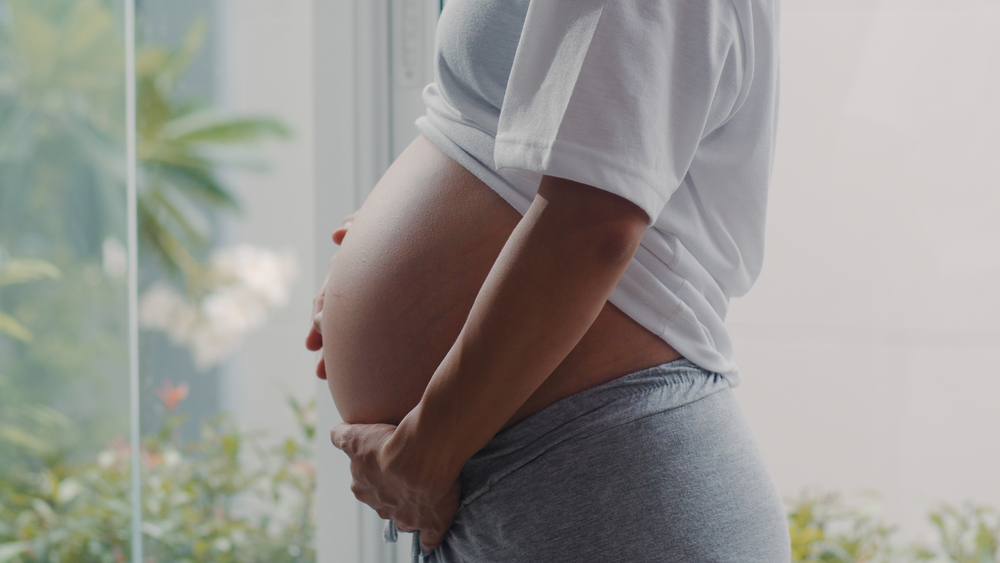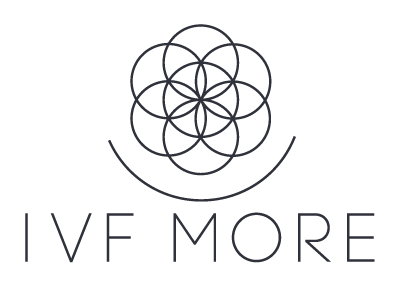Fertility After 35: Why Age Isn’t the Only Factor in Egg Quality
October 2025

Introduction
Turning 35 has long been considered a milestone for women’s fertility — and for good reason. It’s around this age that doctors often start talking about the “biological clock,” the decline in egg count, and the challenges of conceiving naturally.
But here’s the truth: age isn’t the only factor that affects egg quality. While age certainly plays a key role, it’s not the sole determinant of your reproductive potential. A combination of lifestyle choices, genetics, hormonal balance, environmental exposures, and overall health also shape the quality of your eggs.
In this article, we’ll explore the real science behind fertility after 35, debunk common myths, and explain how innovations like IVF MORE® are giving women new opportunities to improve egg quality and make having a baby in their home more possible than ever before.
The Relationship Between Age and Egg Quality
Every woman is born with a finite number of eggs, known as her ovarian reserve. This reserve naturally declines with time, both in quantity and quality.
- At birth: around 1–2 million eggs.
- By puberty: about 300,000–400,000 remain.
- By age 35: approximately 25,000 are left.
- By age 40: fewer than 10,000 eggs may remain.
As eggs age, their internal structures change. The energy-producing mitochondria inside the cells become less efficient, chromosomes may divide irregularly, and DNA damage accumulates. These changes increase the likelihood of chromosomal abnormalities, which can affect embryo development and reduce the chances of successful implantation. However — and this is key — not all women experience the same rate of decline.
Age Isn’t the Only Factor in Egg Quality
While the biological clock is real, it’s not absolute. Two women of the same age can have completely different egg quality and fertility outcomes. That’s because other factors—many of which are manageable—also play a significant role.
Let’s look at the main ones:
1. Lifestyle and Nutrition
Your daily habits directly impact the environment in which your eggs mature. Poor lifestyle choices, such as smoking, excessive alcohol, high sugar intake, or chronic stress, can accelerate oxidative stress, damaging the DNA and mitochondria of eggs. On the other hand, a nutrient-rich lifestyle can help support egg health.
Scientific research shows:
- Diets rich in antioxidants (vitamins C, E, and A, selenium, and zinc) protect eggs from oxidative stress.
- Omega-3 fatty acids, found in fish, walnuts, and chia seeds, support hormone balance and improve blood flow to the ovaries.
- CoQ10 supplements have been linked to better mitochondrial performance in eggs, improving their developmental potential.
Quick tips for improving fertility after 35:
- Eat colorful fruits and vegetables daily.
- Choose whole grains and lean proteins.
- Stay hydrated and limit caffeine to 1–2 cups a day.
- Avoid processed foods and artificial additives whenever possible.
2. Hormonal Balance and Metabolic Health
Hormones like estrogen, progesterone, LH, and FSH work together to regulate ovulation and egg maturation. When these hormones fall out of balance, egg quality can decline. Conditions such as Polycystic Ovary Syndrome (PCOS), thyroid disorders, and insulin resistance can disrupt ovulation and affect the ovarian environment.
What you can do:
- Ask your doctor for a comprehensive hormone panel, especially if your cycles are irregular.
- Maintain stable blood sugar levels through balanced meals.
- Engage in regular moderate exercise, such as yoga, swimming, or walking.
- Manage stress through mindfulness or meditation — stress hormones like cortisol can interfere with reproductive hormones.
3. Environmental and Toxin Exposure
We live in a world surrounded by chemicals — many of which can interfere with fertility. These are known as endocrine disruptors, and they can mimic or block natural hormones in your body, impacting egg quality over time.
Common sources include:
- Plastics containing BPA and phthalates (found in bottles, containers, and food packaging).
- Pesticides in non-organic produce.
- Harsh cleaning products and cosmetics with parabens or synthetic fragrances.
How to reduce exposure:
- Choose glass or stainless steel containers instead of plastic.
- Opt for organic produce when possible.
- Read labels on personal care items — look for “paraben-free” and “fragrance-free.”
Protecting your eggs from environmental toxins can help reduce oxidative damage, supporting healthier cellular function.
4. Genetics and Family History
Your genetic background plays a significant role in determining how your ovaries age. Some women experience a faster decline in egg quality due to inherited conditions like Premature Ovarian Insufficiency (POI) or other genetic factors that influence hormone production and egg maturation.
If there’s a family history of early menopause or fertility challenges, it’s wise to begin fertility evaluation earlier — ideally in your early 30s.
Key genetic factors that may influence egg health:
- Mutations in mitochondrial DNA.
- Family history of autoimmune conditions or endometriosis.
- Inherited predisposition to reduced ovarian reserve.
Modern reproductive genetics can help identify these patterns early, allowing women to make informed decisions about egg freezing or fertility preservation.
5. Medical Conditions and Inflammation
Certain medical conditions can accelerate the decline in egg quality by creating inflammation in the reproductive system.
Common examples include:
- Endometriosis: affects ovarian tissue and may disrupt egg maturation.
- Pelvic inflammatory disease (PID): can damage fallopian tubes and ovarian function.
- Autoimmune disorders: may cause the body to attack its own ovarian cells.
Chronic inflammation can compromise egg development, but treatments such as anti-inflammatory diets, hormonal therapies, and IVF MORE® regenerative techniques can help restore balance.
How IVF MORE® Supports Egg Quality After 35
Modern reproductive science offers new hope for women in their late 30s and beyond. IVF MORE® (Magnetic Ovulatory Restoration) is one of the most advanced fertility techniques available, designed specifically to help women who struggle with egg quality issues due to age or medical conditions.
Here’s how it works:
- Magnetic Field Therapy: This component stimulates cellular activity, improving egg metabolism and promoting healthier maturation.
- Regenerative Medicine: IVF MORE® integrates stem cell-based techniques to rejuvenate eggs and improve their internal energy production.
- Micromanipulation and Precision Embryology: Our laboratory experts use state-of-the-art micromanipulation tools to optimize fertilization and early embryo development.
- Personalized Treatment: Each plan is tailored to your specific biological needs — addressing hormonal imbalances, metabolic health, and cellular rejuvenation — to enhance your chances of success.
While no fertility treatment can promise a 100% healthy pregnancy, IVF MORE® significantly increases the likelihood of obtaining viable embryos and achieving your dream of having a baby in your home.
Can Egg Quality Be Improved After 35?
While we cannot reverse time, there are ways to support and enhance egg health — even after 35.
Science-backed strategies include:
- Maintaining a healthy weight (BMI between 18.5 and 24.9).
- Ensuring sufficient sleep (7–9 hours per night).
- Managing chronic stress through relaxation techniques.
- Taking supplements like CoQ10, vitamin D, folate, and omega-3s (always under medical supervision).
Consistency matters more than perfection. Every positive lifestyle change you make contributes to better reproductive outcomes.
Common Myths About Fertility After 35
Let’s debunk some common misconceptions:
- Myth 1: After 35, it’s too late to have a baby.
Not true. While chances decline, modern IVF and egg restoration techniques have helped many women after 35 — and even after 40 — have a baby in their home. - Myth 2: You can’t improve egg quality.
Lifestyle changes and advanced medical interventions can support mitochondrial health and improve the environment where eggs develop. - Myth 3: Egg quantity is all that matters.
Having many eggs doesn’t guarantee success; egg quality — their ability to fertilize and grow — is what truly determines outcomes.
When to Seek Help
If you’ve been trying to conceive for more than 6 months after age 35, it’s time to consult a fertility specialist. Early testing can provide insights into your ovarian reserve, egg health, and overall fertility potential.
Your specialist may recommend:
- Hormone evaluations (AMH, FSH, estradiol).
- Ultrasound for antral follicle count.
- Genetic screening or advanced testing.
- Discussing options like IVF, egg freezing, or IVF MORE® for improved outcomes.
Taking action early allows you to explore all possibilities — and gives you more control over your reproductive choices.
Conclusion
While age remains an undeniable factor in fertility, it’s far from the only one that matters. Lifestyle, hormones, environment, genetics, and overall health all play significant roles in shaping egg quality.
The good news is that many of these factors are manageable. With the right information, medical guidance, and access to innovative treatments like IVF MORE®, women over 35 still have powerful tools to support their fertility. Your journey doesn’t have to be defined by age; it can be guided by science, care, and hope.
Curious about how IVF MORE® can help improve egg quality after 35? Contact our team today to schedule a consultation and discover how science can support your goal of having a baby in your home.
